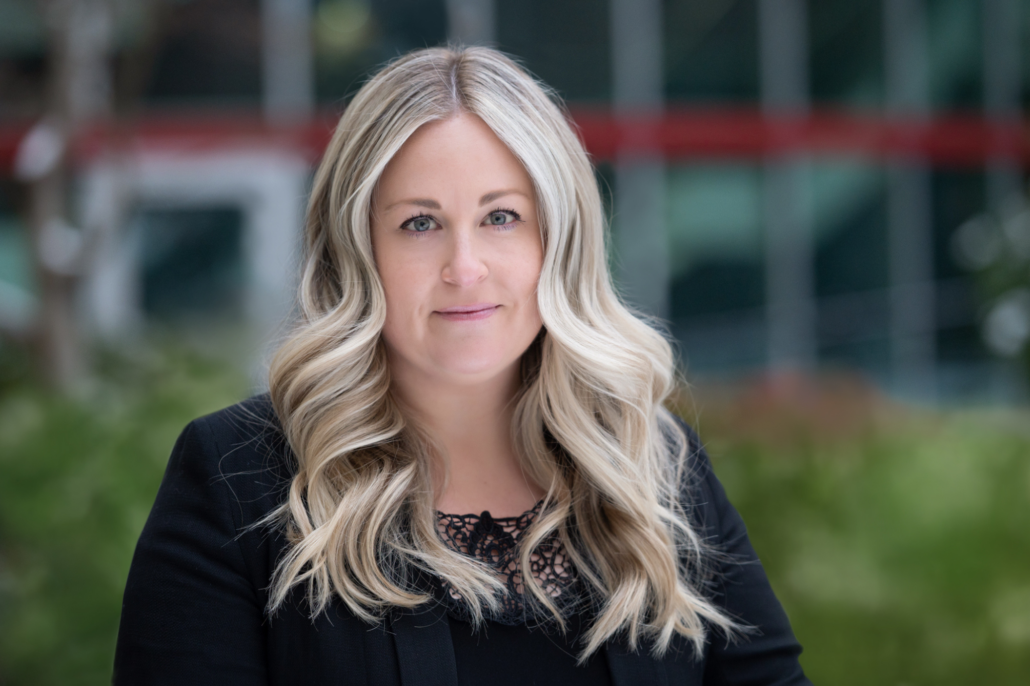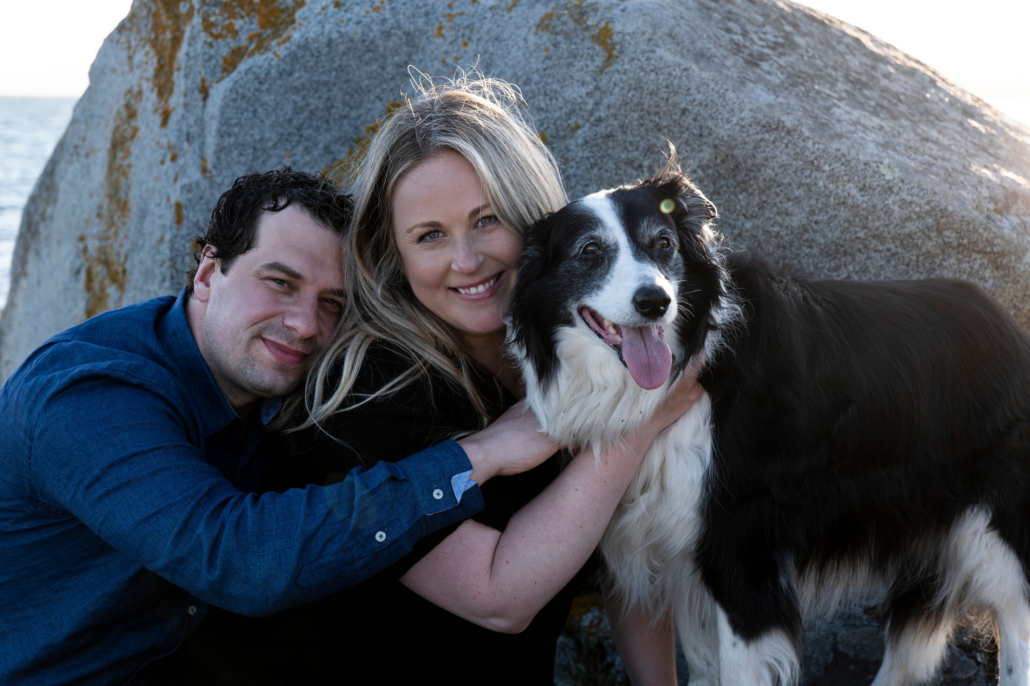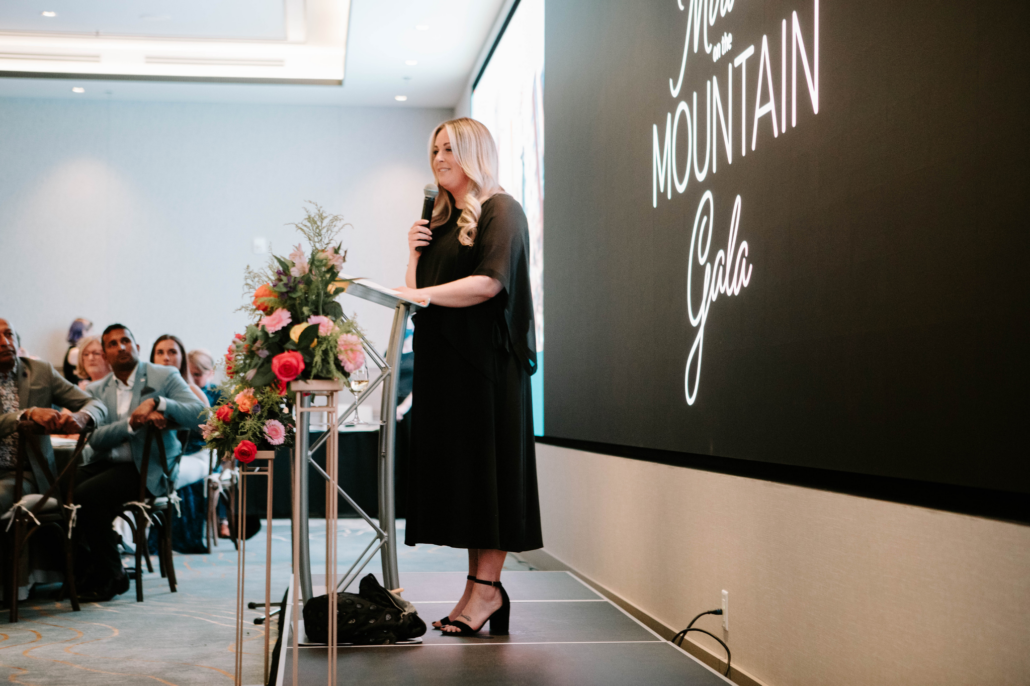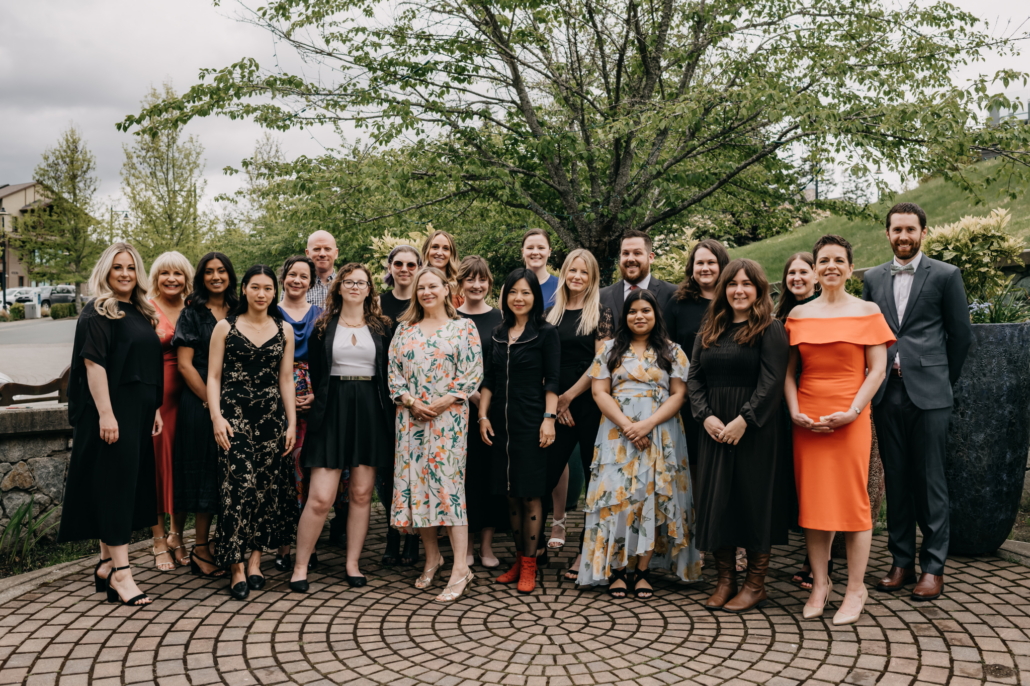
Avery Brohman
CEO, Victoria Hospitals Foundation; community leader, dog mom to Grace, wife, daughter, human
I fell into philanthropy by accident.
I was taking a public relations diploma at Conestoga College. We had to do a co-op, and I thought it made sense to offer my free labour to a not-for-profit, which ended up being Big Brothers Big Sisters of Kitchener-Waterloo. And I realized it was so much more than just a charity. It was meaningful work, but also strategic. You had to be smart.
Big Brothers Big Sisters hired me after that co-op, and that’s when I realized I loved meeting people. I had no fear of rejection—I didn’t take it personally. One of the first things I was tasked with was to fill a silent auction table. I just cold-called everyone and had so much fun driving around the city, picking up items. From there, I continued to work for not-for-profits and pursue more education. I just committed. I dove into the deep end.
I moved to Victoria from the Yukon four and a half years ago, but the majority of my career was fundraising in the Greater Toronto area. Hospitals touch everyone, and I thought, how lucky would I be to work for a cause that impacts everyone? It was also a reasonable commute for my husband, Eric, who travels to the Yukon every other week and manages a family business.
I didn’t know much about Victoria, except that Eric and I had taken a trip here for our first wedding anniversary. We didn’t leave the downtown core. I had no idea about the real beauty of this place.
What I remember most about that trip was the iconic Fairmont Empress hotel. Eric and I stayed there, and it feels like a second home to me now. It’s where the Foundation hosts our annual Visions Gala. I have a photo of Eric standing outside the hotel. I always think back to that moment seven years ago, when we were walking through those doors, and I had no idea I’d be hosting million-dollar fundraising events there. It’s a full-circle moment for me.
“I always think back to that moment seven years ago, when we were walking through those doors, and I had no idea I’d be hosting million-dollar fundraising events there. It’s a full-circle moment for me.”
“Grace was my dad’s dog. She knows her job in life is to take care of me, and my job in life is to take care of her.”
The hardest time in my life was when my father passed away. There were no warning signs. He passed from a rupture in his bowel that couldn’t be repaired, and he fought for his life for four weeks in the ICU.
It’s been five years now, and I still think about it every day. The hardest part was dealing with the shock—and the grief. I’m an only child, so I really relied on Eric, my mom (who I get my strength from), and my friends to rally me through that challenging time. Even now, it’s difficult for me that my dad doesn’t know I do this job. I wish he were here to see me do this work.
After he passed, I left my job and pursued a role in hospital philanthropy. I think I had been a little naïve. I thought the work stopped at five o’clock—but in the hospital, the care is 24/7. I just had this sense of appreciation. I remember a doctor saying to me, “What happened to your dad is hard to comprehend right now. This is my phone number. If you ever want to call me later in life, and I can explain this case to you when you’re feeling better, I will do that for you.” I was so grateful for that. I wanted to work for people like that.
Grace was my dad’s dog. She knows her job in life is to take care of me, and my job in life is to take care of her.
Prior to getting Grace, if you had told me that I would be a dog person, there is no amount of money that I would have put on that. But she’s been there through thick and thin, and she’s put in more office mileage than most of our staff. I love having part of my dad in Grace, but I also love that Grace has helped me explore the Island more. I don’t think I would have gone to the beaches, taken the hikes, visited the dog-friendly patios, or toured the markets if it wasn’t for her. Because, every day, I still want to give her a great day.
My dad was the first person to be at an event or volunteer. Like him, I have this desire to serve people and make sure they’re okay. While it’s hard that he’s not here to see me do this work, I know that he’s endorsing it, and that feels good. Acts of service is truly my love language, and I am so grateful to have found my path early on.
A younger generation of philanthropists gives me hope. And also people who are going to school to become caregivers right now. That gives me great hope that we are in good hands.
I get to meet so many incredible humans in this job. To me, being human is understanding everyone else’s differences. It’s being authentic in how you show up, and understanding that you are unlike anyone else. And it’s giving other people the chance and opportunity to be human with you, too.
I wish I would have told more people how much they contributed to my life. When you’re younger, you might not have the confidence to tell people that. But telling people how you feel and how they have helped you is contagious.
I also wish people knew that, while I have a front-facing profile, this is not a solo mission. I work with the most incredible people—our staff, our donors, our care teams. It really takes all of us to do this work. I know how big this job is, but it’s the positive influences in my life that have made it possible. So, I try to be a positive influence on other people’s lives because I know that it only takes one person to see something in you and make you want to go for it.
I just want people to know that, every time they see my photo, or a quote, or me standing in front of a hospital, there’s this dynamic group behind the scenes who enabled me to be here.
“I also wish people knew that, while I have a front-facing profile, this is not a solo mission. I work with the most incredible people—our staff, our donors, our care teams. It really takes all of us to do this work.”
“I felt responsible to get it right. I wanted the community to know we needed help, but I also wanted them to know who these frontline healthcare professionals were.”
I knew things were serious on March 17, 2020, when no one was driving on the roads. We were officially in lockdown. I came to the office to get my laptop, do some cleaning, and close up shop. And I just had this moment with myself. I looked out at every car in the parking lot here at Royal Jubilee Hospital, and I thought, the rest of the world is stopping everything, but there’s this group of people who are not able to stop. That realization enhanced my commitment and passion for this work. Every day, I still look across the road, and there’s this group of healthcare workers who still haven’t had a break.
I was really concerned about my team, and about the hospitals. I thought we would work remotely for a few weeks. I didn’t know if our donors and community would be able to support us more that they ever had before. But I knew we would be in good company with other charities, whose needs were just as compelling as ours. I wanted to make sure we were fostering collaboration, not competition. And I knew our Foundation’s main role during that time was to help expand critical care on the Island. We needed to build for the future, and for future pandemics.
I also realized I was representing—in a very forward way with the media—the faces and people inside our hospitals. I felt responsible to get it right. I wanted the community to know we needed help, but I also wanted them to know who these frontline healthcare professionals were. And it’s a group that is larger than just doctors and nurses—it’s also respiratory therapists, social workers, techs, and Daniel, who comes in to clean our office. Every single person within these hospitals were part of the frontline. And, every time I represented them, I wanted to do it with respect, honesty, and humility.
I want them to know that I do this work for them. I want them to know that I know not every day is easy, but they’re truly touching lives. And to just hold on. Please don’t give up. There’s this whole team here at the Foundation, and this group of individuals in the community who are behind you 100%. Even though you might not see it or feel it every day, we’re here with you.
They are humans first, who put other humans first.
More than 8,900 caregivers and staff work around the clock in our Victoria Hospitals
#HumansFirst is dedicated to sharing the stories from behind our hospitals’ frontlines. These stories remind us that those who provide care and keep the lights on in our hospitals also have lives outside of them. They have family and friends, they enjoy hobbies and interests, and they have all lived through their own personal triumphs and heartbreaks. Like all of us, they are human, and they have a story to tell.








